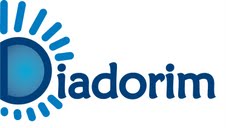EFEITO DE 14 SEMANAS DE TREINAMENTO RESISTIDO EM MULHERES SEDENTÁRIAS COM HIPERDISLIPIDEMIA
DOI:
https://doi.org/10.13037/rbcs.vol11n37.1760Keywords:
Educação FísicaAbstract
Introdução: A dislipidemia caracteriza-se por alterações dos níveis perfil lipídico e sendo sua etiologia de origem multifatorial. O exercício físico tem sido utilizado como uma ferramenta não farmacológica para o tratamento e combate as doenças cardiovasculares, através de programas de treinamento aeróbio e treinamento resistido. Objetivo: Comparar as adaptações fisiológicas induzidas pelo treinamento resistido sobre o perfil lipídico em mulheres com idade superior a 50 anos. Materiais e Métodos: 24 mulheres, idade acima de 50 anos foram divididas em 2 grupos; Grupo Controle (GC) e Grupo de Treinamento Resistido que realizou o programa de exercício físico (GT) com 12 participantes em cada grupo por 14 semanas. Foram avaliados peso corporal, altura, índice de massa corporal (IMC), percentual de gordura (%G), perfil lipídico, 1 repetição máxima (1RM). Resultados: O GT apresentou reduções significativas no peso corporal, %G, IMC, colesterol total, triglicérides e VLDL quando comparado pré e pós e %G, CT e LDL entre GT e GC. Conclusão: exercício resistido induz em elevação do gasto calórico após o esforço físico esta modalidade de exercício pode ser utilizada como mais uma alternativa para o controle do perfil lipídico.
Downloads
Downloads
Published
Issue
Section
License
Policy Proposal for Journals offering Free Delayed Access
Authors who publish in this magazine agree to the following terms:
- Authors maintain the copyright and grant the journal the right to the first publication, with the work simultaneously licensed under a Creative Commons Attribution License after publication, allowing the sharing of the work with recognition of the authorship of the work and initial publication in this journal.
- Authors are authorized to assume additional contracts separately, for non-exclusive distribution of the version of the work published in this magazine (eg, publishing in institutional repository or as a book chapter), with the acknowledgment of the authorship and initial publication in this journal.
- Authors are allowed and encouraged to publish and distribute their work online (eg in institutional repositories or on their personal page) at any point before or during the editorial process, as this can generate productive changes, as well as increase impact and citation of the published work (See The Effect of Open Access).









